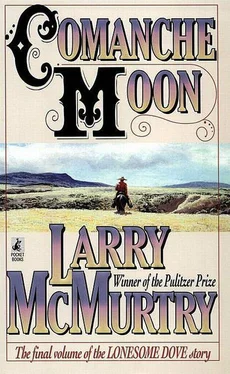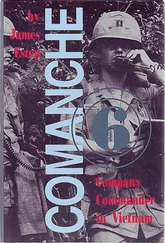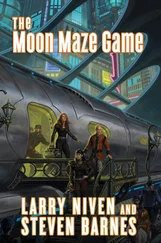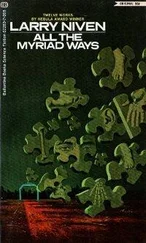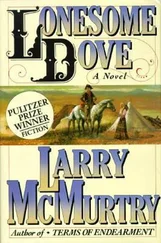It was as he moved deeper into the waterless llano that he heard the faint singing, at night, and determined that it was made by a single Comanche.
Famous Shoes thought he ought to just pass by the Comanche, but the closer he came to the singing, the more curious he felt. Though he knew it was dangerous to approach a Comanche, in this case he could not resist. As he eased closer to the singer it became clear to him that the man was singing the song of his life. He was singing of his deeds and victories, of his defeats and sorrows, of the warriors he had known and the raids he had ridden on.
As he came closer Famous Shoes saw that the man was indeed alone. He had only a tiny fire, made of buffalo dung, and a dead horse lay nearby. The song he sang was both a life song and a death song: the warrior had decided to leave life and had sensibly decided to take his horse along with him, so that he could ride comfortably in the spirit world.
Famous Shoes decided that he wanted to know this warrior, who had chosen such a fine way to leave life. He didn't think the Comanche would turn on him and kill him--f listening to the life song that was a death song he knew that the warrior would probably not be interested in him at all.
He knew, though, that it was not polite to interrupt such a song. He waited where he was, napping a little, until the gray dawn came; then he stood up and walked toward the warrior, who was poking up his fire a little.
The warrior by the small fire did not rise when he saw Famous Shoes coming. His voice was a little hoarse, from all his singing. At first, when he saw Famous Shoes approaching, his look was indifferent, like the look of warriors so badly wounded in battle that their spirits were already leaving their bodies, or like the look of old people who were looking beyond, into the spirit home. The warrior was very thin and very tired. He had not eaten any of the dead horse that lay nearby; he was exhausted with the effort it took to get his life into the song.
Famous Shoes did not know him.
"I was passing and heard your song," Famous Shoes said. "Some of Blue Duck's men were chasing me. I had to kill one of them--t was two days ago." At mention of Blue Duck the warrior's expression changed from one of indifference to one of contempt.
"I was at the camp of Blue Duck," he said, in his hoarse voice. "He was camped on the Rio Rojo, near the forests. I did not stay.
They had a bear there and were mistreating it. The men with Blue Duck are only thieves. I am glad you killed one." He paused and looked into the fire.
"If I had been there I would have killed the other two," he said. "I did not like the way they abused the bear." Famous Shoes knew the man was in a state not far from death. It was most uncommon for a Comanche to say he would have fought along with a Kickapoo, since the two peoples were enemies, one of the other.
"What did they do to the bear?" he asked.
"I killed the bear," Idahi said, remembering the expression on the bear's face when he had walked up to shoot it. It had been a sad bear, broken by many beatings.
Though Idahi felt no anger at the Kickapoo who had stopped to talk with him, he did feel a great tiredness when he tried to speak to the man. He had been almost out of life, singing the song of his deeds, but the Kickapoo was not out of life at all. He was a fully living man, still curious about the things that living men did. Idahi found it hard to come back. He had turned inside him, toward the spirit time, and could not easily concern himself with Blue Duck or the things of fleshly life.
Famous Shoes saw that the Comanche was weary and only wanted to get on with his dying. Though he knew it was impolite to detain a person bent on travelling in the spirit time, he could not resist one more question.
"Why are you alone?" he asked.
The Comanche seemed a little annoyed by the question.
"You are alone yourself," he pointed out, with a touch of disdain.
"Yes, but I am merely travelling," Famous Shoes said. "You have killed your horse.
I don't think you want to travel any farther." Idahi thought the Kickapoo was a pesky fellow--t was the problem with Kickapoos. They were all pesky, continually asking questions about things that were none of their business. Probably that was one reason his own people always killed Kickapoos as soon as possible, when they happened on one of them. Idahi decided just to tell this Kickapoo what he wanted to know; maybe then he would leave so Idahi could continue singing his song.
"My people have gone to the place the whites wanted them to go," he said. "I did not want to go to that place, so I left. I went to be with the Antelope Comanche but they have nothing to eat. They live on mice and prairie dogs and roots they pull out of the ground. I am not a good hunter, so they did not want me.
"None of the Comanches have much to eat now," he added.
"But the Comanches have many horses," Famous Shoes reminded him. It had always struck him as a vanity that the Comanches were so reluctant to eat their horses. They were not practical people like the Kickapoo, who would as cheerfully eat a horse as a deer or buffalo.
Idahi didn't answer. Of course the Comanches had horses--even the Antelopes had quite a few horses. But Quanah, war chief of the Antelopes, still meant to fight the Texans, and fighting men could not afford to eat their mounts while they still contemplated war. Their horses were their power; without horses they would not really be Comanches anymore. He did not want to talk of this to the Kickapoo, so he began to sing again, although in a faint voice.
Famous Shoes knew he had stayed long enough. The Comanche had chosen to go on and die, which was a wise thing. His own people had gone onto the reservation, and the other bands of Comanches did not want him. Probably the warrior was tired of being hungry and alone and had decided to go on to the place that was well peopled by spirits.
"I am going on with my travelling," Famous Shoes told him. "I hope those two renegades who ride with Blue Duck do not bother you--they are very rude." Idahi did not respond to the remark. He was remembering a feast his people had once had, when they had managed to stampede a herd of buffalo off a cliff into the Palo Duro.
There had been meat enough for the whole band to feast for a week--one or two of the neighboring bands had come too.
Famous Shoes did not have much food either; he did not like prairie dog meat, which was the easiest meat to obtain on the dry llano. He would have liked to take a little horsemeat from the Comanche warrior's dead horse, but he knew that it would not be a polite thing to do.
The lone Comanche who had decided to die sang his final song so faintly that before Famous Shoes had taken many steps he could no longer hear him singing.
Kicking Wolf was the last person in the tribe to have a conversation with Buffalo Hump, and the conversation, as usual, had been about horses.
Both of Buffalo Hump's wives were now dead; of the two, Heavy Leg had lived the longer, though Lark was much the younger woman. Lark had foolishly let a deer kick her--though the deer was down and dying, it still managed to kick Lark so badly in the ribs that she began to spit blood.
Within two days she was dead. Heavy Leg had not been foolish in regard to dying deer, but, in the winter, she had died anyway, leaving Buffalo Hump with no one to tend his lodge.
Of course, Buffalo Hump possessed many horses. He could easily have bought himself another wife, but he didn't. The young women still tittered about the old chief's hump. Some of them wondered what it would be like to couple with such a man, but none of them found out because Buffalo Hump ignored them.
Although his lodge soon grew tattered and poorly kept, and he had to prepare his own meals, he did not send for a new wife, or seek one. He spent most of his days sitting on his favorite pinnacle of rock, watching the hawks and eagles soar high above the canyon. He had no visitors. Many of the young people of the tribe had forgotten that he had ever been a chief. Only when there was singing and a few of the old warriors sang about the thousand-warrior raid was Buffalo Hump recalled.
Читать дальше
